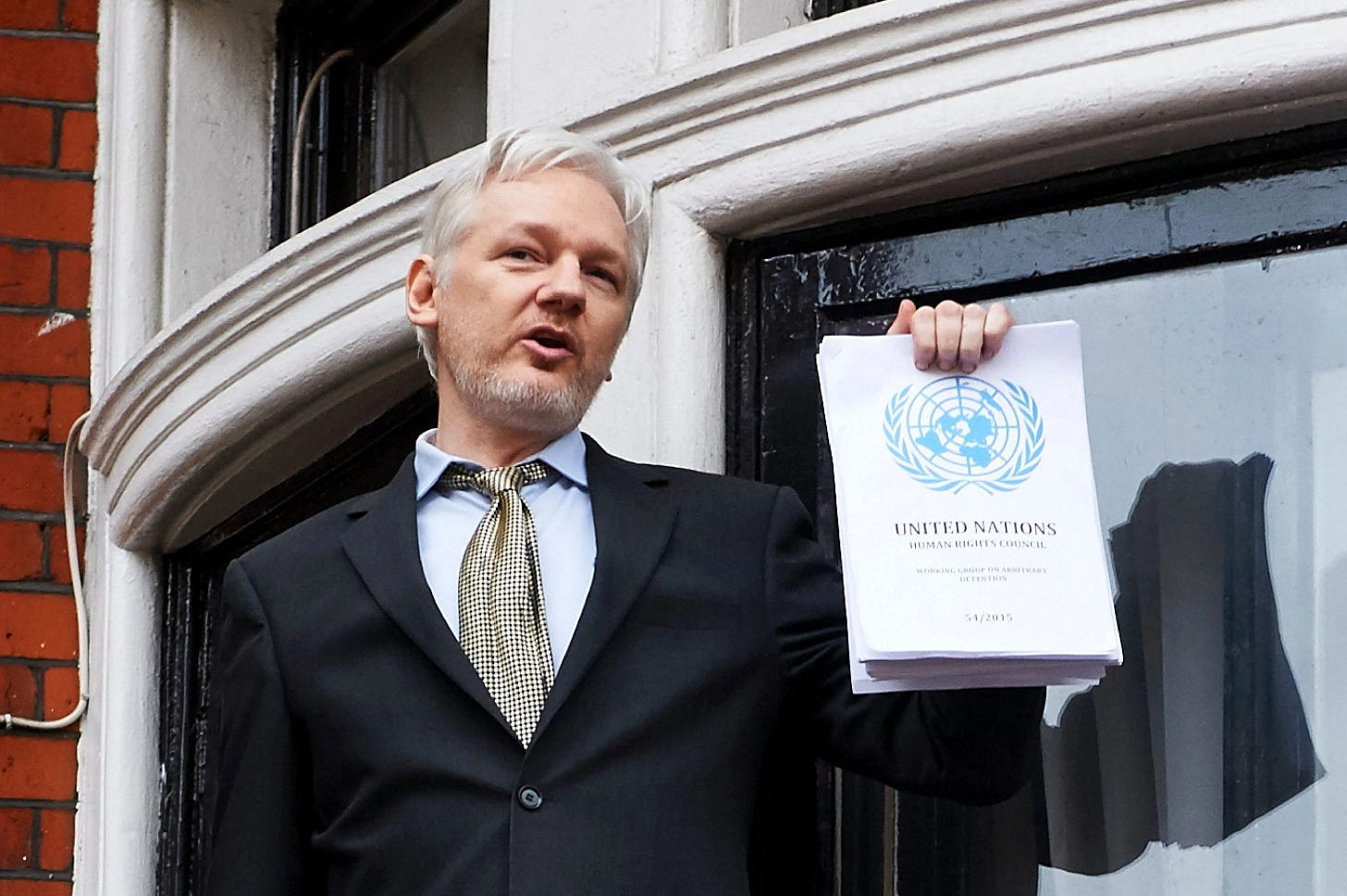Julian Assange Freed: A Landmark Plea Deal Ends Years of Incarceration
WikiLeaks founder Julian Assange is set to regain his freedom after agreeing to a plea deal with the U.S. Justice Department.
In a historic turn of events, WikiLeaks founder Julian Assange is set to regain his freedom after agreeing to a plea deal with the U.S. Justice Department.
According to court documents, Assange plans to plead guilty to a conspiracy charge, a decision that will bring an end to his five-year imprisonment in a British high-security facility.
This agreement, disclosed in documents filed in the U.S. District Court for the Northern Mariana Islands, marks a significant moment in the long and contentious saga surrounding Assange.
The Charges and Plea Deal
Assange's legal battles stem from his role in one of the most extensive leaks of classified information in U.S. history. Beginning in late 2009, Assange, in collaboration with Chelsea Manning, a former military intelligence analyst, orchestrated the release of a vast trove of sensitive documents via his WikiLeaks platform.
These included tens of thousands of activity reports from the Afghanistan and Iraq wars, hundreds of thousands of State Department cables, and detailed assessments of detainees at Guantanamo Bay.
The charges against Assange, detailed in a criminal information—a document typically associated with a plea deal—center on conspiracy to obtain and disclose national defense information.
As part of the agreement, Assange will be sentenced to 62 months, with credit for the time he has already served in British custody. This means he will be free to return to Australia, his homeland, following the court proceedings.
From Asylum to Arrest
Assange's journey has been fraught with legal and political challenges. After spending seven years in self-imposed exile within the Ecuadorian Embassy in London, his asylum was abruptly terminated in April 2019. British authorities subsequently arrested him, and he was placed in Belmarsh Prison, known for its high-security measures.
Throughout his incarceration, Assange has been a polarizing figure, hailed by some as a champion of transparency and condemned by others as a reckless disseminator of classified information.
Legal Battles and Extradition
For over a decade, Assange has fought against extradition to the United States. His legal team has consistently argued that his actions were protected under the First Amendment, emphasizing the importance of press freedom and the public's right to know.
In March, the High Court in London granted him permission for a full hearing on his appeal, specifically regarding whether he would face discrimination in the U.S. due to his status as a foreign national. A separate hearing, focused on Assange's free speech rights, was slated for July 9-10, underscoring the ongoing legal wrangling that has defined his case.
The Broader Impact of WikiLeaks
Assange's influence extends beyond the immediate legal ramifications of his actions. WikiLeaks' publication of hacked emails from the Democratic National Committee had a profound impact on the 2016 U.S. presidential election, leading to the indictment of Russian intelligence officers.
This incident highlighted the intersection of cyber operations, geopolitical strategies, and electoral processes, raising critical questions about the role of digital platforms in modern political landscapes.
Looking Forward
As Assange prepares to leave behind the confines of Belmarsh Prison, the implications of his release are manifold. For supporters, his freedom represents a victory for transparency and the right to disseminate information of public interest.
Critics, however, continue to view his actions as reckless endangerment of national security. The plea deal, while closing a significant chapter in Assange's life, leaves open broader debates about the balance between security and freedom in the digital age.
Assange's return to Australia will likely be met with mixed reactions. While some may see him as a hero who stood up against powerful governments, others may regard his actions with suspicion and concern.
As the global discourse around information security, press freedom, and whistleblowing evolves, Julian Assange's story remains a pivotal case study, illuminating the complexities and stakes involved in the digital dissemination of classified information.
Conclusion
The plea deal allowing Julian Assange to walk free marks a pivotal moment in the ongoing discourse around whistleblowing, press freedom, and national security. As he returns to Australia, the debates he has sparked will continue to resonate, challenging societies worldwide to navigate the delicate balance between transparency and security in an increasingly interconnected world.




